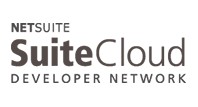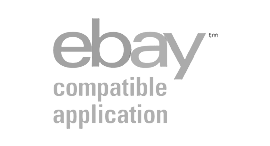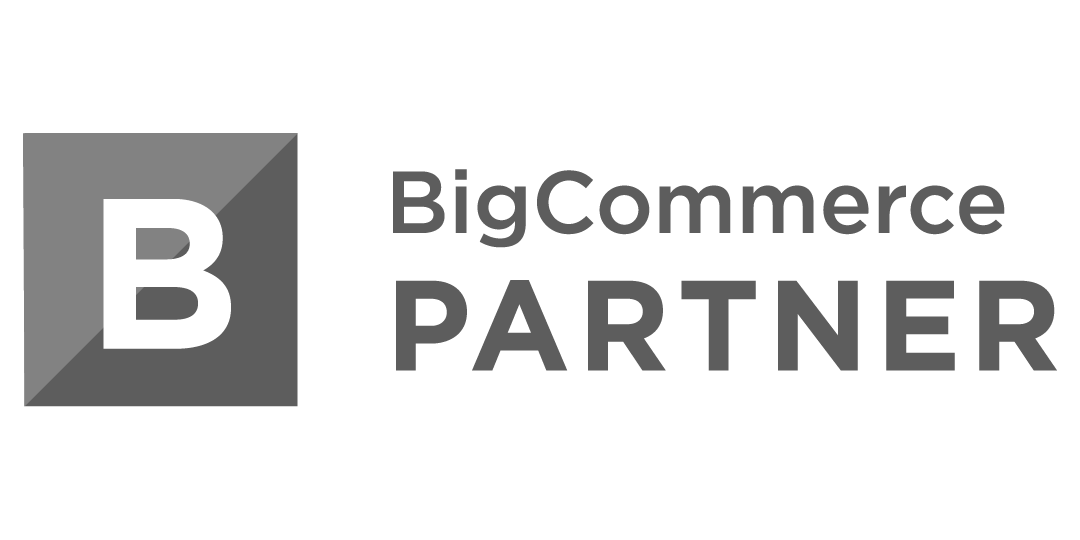More businesses are turning to Software-as-a-Service (SaaS) apps and systems to run their operations like Office 365, Salesforce, Box, and Google Apps. Retailers can also benefit from using SaaS eCommerce platforms to better manage their own processes.
Using a SaaS eCommerce platform instead of open source or on-premise software can seem overwhelming for any size business. It feels like an even more daunting decision if you’re planning on switching platforms. And since SaaS platforms are relatively new to the market, there are still a lot of questions about them and how they compare to legacy software.
So, in this article, we’ll cover what a modern SaaS eCommerce platform is and its advantages and disadvantages for merchants. By the end, hopefully you’ll understand if using a SaaS eCommerce platform is the right choice for your business.
What is a SaaS eCommerce Platform?
SaaS is a word that’s thrown around a lot lately. There are all types of SaaS platforms that fulfill different business functions. SaaS eCommerce platforms are just a small piece of the SaaS industry.
SaaS stands for Software-as-a-Service. It’s a software licensing and delivery model in which software is licensed to a user and accessed via the internet. SaaS eCommerce platforms then are cloud-based systems that are accessed on any web browser.
One of the biggest advantages of SaaS platforms is that the software isn’t installed on-premise or maintained by the user themselves. Instead, your eCommerce system runs on the SaaS provider’s hosted servers. Your 3rd-party provider then is responsible for the security, performance, and maintenance of the application on their servers.
Typically, SaaS applications are licensed on a subscription basis. Users pay a monthly fee based on level of service and number of users. This licensing model is usually a cost-effective way for merchants to have real-time access to their eCommerce platform whenever and wherever there’s an internet connection.
Popular examples of SaaS eCommerce providers are Shopify, BigCommerce, and Volusion. All of these platforms have seen significant growth in total users over the past few years, especially Shopify.
SaaS vs Open Source vs On-Premise Platforms
When merchants are comparing eCommerce platform options, you’re most likely choosing between SaaS, open source or on-premise. There are some stark differences between these types of platforms. While we could go into great detail about how they all different (which warrants a post of its own), we’ll do a quick overview of the essentials here.
SaaS eCommerce platforms, as mentioned above, are licensed to users. The 3rd-party vendor hosts and maintains the cloud servers used to run the software. Merchants access the software via an internet browser and pay a monthly subscription to use the software. They provide most of the functionality you need out-of-the-box. It’s really 1-stop shop for all your webstore needs.
When comparing SaaS vs on-premise or open source eCommerce platforms like Magento, Prestashop, and WooCommerce, the difference is that you are responsible for maintaining all aspects of your software like security patches, software updates, and hosting services. For most merchants, especially SMB’s, this can be expensive. You’ll have to juggle a handful of vendors to take care of these areas for you and have less predictable maintenance costs. You’ll exclusively work with a provider to host your webstore and take care of performance, PCI compliance and installing firewalls. Then, you’ll work with a web developer or agency to work on your storefront design, security patches and software updates. This can be overwhelming to find and manage different vendors and drain resources over time. Most of the time, eCommerce business owner don’t want to manage these messy technical decisions and just want to focus on growing their business.
Merchants turn to platforms like Magento because they are open source, meaning that their software code is available to anyone. Freedom make changes and edit the software code gives merchants unlimited customization and flexibility. While these platforms are usually free to download, you’ll either need an IT team in house or work with a partner to use the platform effectively in the long run.
Keep these differences in mind as we cover the major advantages and disadvantages of SaaS eCommerce platforms.
Advantages of SaaS eCommerce Platforms
There are many reasons while more merchants are turning to SaaS platforms to run their eCommerce business, especially SMBs.
Out-of-the-Box Solution
SaaS eCommerce platforms are out-of-the-box solutions. Most platforms have a handful of basic shopping cart functionality built into the platform already. Merchants can take advantage of prebuilt, customizable themes, basic product information management, marketing capabilities, and other needed functionality.
Because of these features, new merchants can set up and run an online store very quickly. SaaS projects don’t take several months to complete. You don’t need your own IT team or extensive developer knowledge to run your business. Merchants can leverage intuitive, user-friendly interfaces.
Maintenance
The biggest advantage of SaaS eCommerce platforms is that the provider hosts and maintains the software. You don’t need to search and find a hosting provider to work with. Instead, they’re also responsible for uptime, performance speed, software bug fixes, software updates, and anything else of the sort. Your provider is constantly watching and monitoring the performance of your store. SaaS providers are usually known for their helpful and quick support teams.
If you don’t have your own IT team to manage this level of administration, then this is an important distinction of SaaS platforms.
Security and PCI Compliance
If you want to sell online, then you must be PCI compliant so you can safeguard your customers’ payment information. eCommerce SaaS providers ensure that you meet PCI compliance standards. It’s their responsibility to stay up to date with any patches or bug fixes that affect your security.
For many retailers, this is an important advantage. Your customers can trust you with their sensitive information. With the amount of data hacks there are today, it’s more important than ever to have their trust.
Scalability
Growing retailers need their eCommerce platform to scale along with them. It should be easy to take on more customers, process more orders, and add more complex functionality when needed.
SaaS eCommerce platforms tend to be more flexible than other platforms. Additional functionality can be added with new apps. You can add new sales channels when you’re ready. You can increase your bandwidth on servers to deal with increased traffic, this is especially important when running flash sales.
Also, growing your business doesn’t have to mean incurring high new expenses. Your platform doesn’t have to be rebuilt every time you change business processes. It can be as easy as just moving up a payment tier when adding new users or features.
Cost
Overall, SaaS eCommerce systems can be more affordable. There’s minimum upfront costs to get started. You won’t have crazy expenses for development work since you’re not building your platform from scratch. You don’t always have to work with a partner to create a complete, custom design for your webstore. With so much functionality already built into the platform, you don’t have to spend as much on add-ons.
Another area where merchants save costs is maintenance. You aren’t responsible for ongoing maintenance of your webstore. You don’t have to pay partners to work on patches or bug fixes in the software.
Easy Integration
While your eCommerce system is the foundation of your business, it’s not always the only system you use to run all your operations. Often, it’s even recommended that you don’t run your entire business from your eCommerce platform. After all, the software is just a shopping cart.
Whether you need integration right away or later, SaaS eCommerce platforms are usually easier to integrate with an ERP, POS, 3PL, or any other financial software. Most SaaS platforms have powerful APIs that make integration easier with predictable projects because there isn’t as much customization.
At nChannel, we believe merchants should use best of breed systems meaning that they use the best system for each part of their business. Most of the time, choosing one platform to perform all aspects and functions of your business falls short of your expectations.
Instead, merchants should be able to use any number of best systems for their ERP, POS, 3PL and eCommerce systems. Then, integrate those systems so you can sync inventory, orders, customers, items, and shipping/tracking data, thus automating your business processes.
Cloud-based, SaaS platforms often make that happen the easiest. The nChannel platform is a cloud-based multichannel management platform itself that you can use to integrate your retail systems. Learn more about our integrations here.
Disadvantages of SaaS eCommerce Platforms
While SaaS platforms have many benefits, they’re not always the right platform choice for every business. See a few areas where SaaS platform can fall short for merchants.
Lack of Customization
SaaS platforms leverage prebuilt templates and built in functionality. While these features make their platforms easy to use and quick to get started with, they can also limit you. In some cases, SaaS eCommerce platforms lack the ability for extreme customization.
Unlike open source, most SaaS eCommerce platforms don’t give you access to the software’s code. So, you cannot make changes to it. What you get, is what you get. If you need very unique functionality, then a SaaS platform might not be able to make that happen.
Handling Complexity
Advanced customization is usually needed to handle very complex business processes. You could have advanced logistic needs because you work with multiple distributors and warehouses. Selling across dozens of marketplaces, multiple eCommerce, and selling internationally also complicate your selling processes.
A simpler, out-of-the-box SaaS platform is not going to fulfill all your needs. You’ll need to customize your platform and use integration to connect all your systems and processes. In this case, most merchants rely on their own custom-built platform.
Supporting B2B Needs
Whether a platform is SaaS or not, most eCommerce systems fall short for B2B sellers. While although B2B is beginning to look more like B2C, B2B requirements are different. There are requirements for things like customer-specific pricing, discounts by quantities, wholesale pricing, and different payment terms that just aren’t needed for B2C sellers. Not all eCommerce systems have solutions for these requirements. Or if they do, they don’t do it well.
Ideal SaaS eCommerce Platform Users
Looking at both the advantages and disadvantages of SaaS eCommerce platforms should give you a better idea if it’s the right choice for your business. However, if you’re still not sure, here’s what an ideal SaaS SMB customer looks like.
Ideal SaaS eCommerce SMB Customer
- Wants to start selling right away and needs to launch store quickly
- Limited resources for custom development and IT work
- Sells exclusively online on just their webstore and 1 or 2 marketplaces
- Needs to integrate their webstore to an ERP, POS, or 3PL system
- Wants to use pre-built and customizable webstore themes, doesn’t want to build store from scratch
- Has a small team where members where many hats and handle a variety of operations
- Interested in working with the community that supports the platform
- Does not want to handle security, maintenance, or uptime of platform
- Need a cost-effective platform
SaaS eCommerce Enterprise Customers
SaaS eCommerce platforms tend to get pegged as just platforms for SMB companies or Entrepreneurs who are just starting out. However, that’s not always the case!
SaaS platform can handle large order volumes, surges in traffic and some advanced capabilities like drop shipping. And they actually do so quite well. If you’re an Enterprise company, you can consider a SaaS platform, if you have the right mindset.
SaaS eCommerce platform work well for Enterprise companies who do not want to run their entire online business out of their eCommerce system. Instead, they want to use the platform just for its shopping cart functionality and will use a handful of other systems for other operations like fulfillment, order processing, customer management, product information management, and more.
As mentioned above, you’ll want to run a best of breed strategy in which you use the best system for each different area of your business. Then, you can use integration to get the most value out of each system and give you that extra functionality needed to run your entire business.
If you have this mindset, then you would want to choose a SaaS Enterprise eCommerce platform, if it’s the best shopping cart out there. You’ll save yourself time, money, and resources, while still not sacrificing the customer experience.
Choosing the Right eCommerce Platform for Your Business
We’re not going to tell you if a SaaS platform is best for your business. It depends on your unique needs. But we do hope this information helps you make the right decision.
We know that choosing an eCommerce platform is hard, but is critical to the success of your business. So, we’ve put together a guide to help you compare and choose from some of the most popular eCommerce platforms out there.
Check out our Multichannel Implementer’s Guide by clicking the image below.
If you’re not quite ready to compare platforms yet, then check out these other eCommerce articles.






Great article, thanks for digging into this.
[…] are advantages to using one e-commerce platform or the other, such as cost, ecommerce website design, functionality, or the like, so make sure you do research […]
Great explanation about SaaS Ecommerce platform. Shopify, BigCommerce, Volusion, StoreHippo; among these which is the best Saas Ecommerce platform?
[…] are advantages to using one e-commerce platform or the other, such as cost, ecommerce website design, functionality, or the like, so make sure you do research […]
[…] you will be using the SaaS platform and their serves to process critical information that relates to your business. In addition to […]
[…] the help of different e-commerce SAAS platforms, it becomes easier for any person to get online and open their store without any sufficient […]
[…] the last several years, SaaS-based eCommerce platforms like these have made it realistic and simple for business owners to create attractive and […]
New things I got to know. Thank you for sharing!